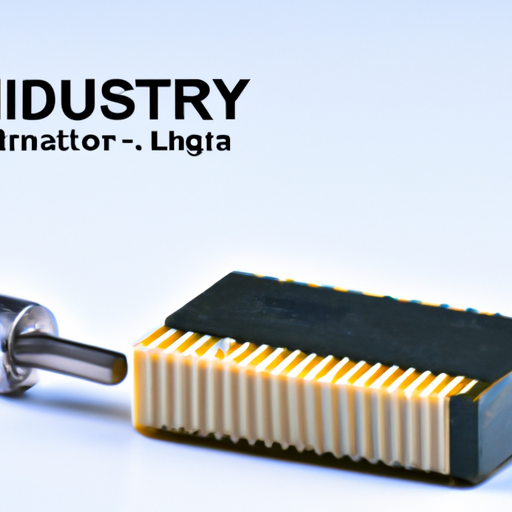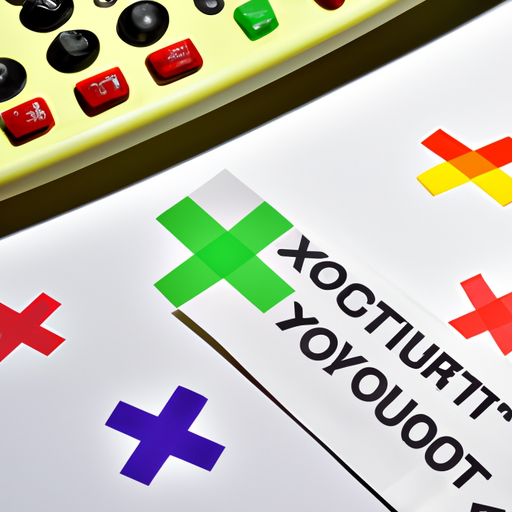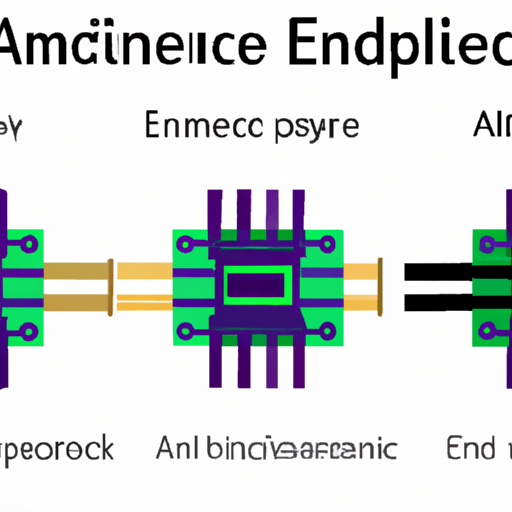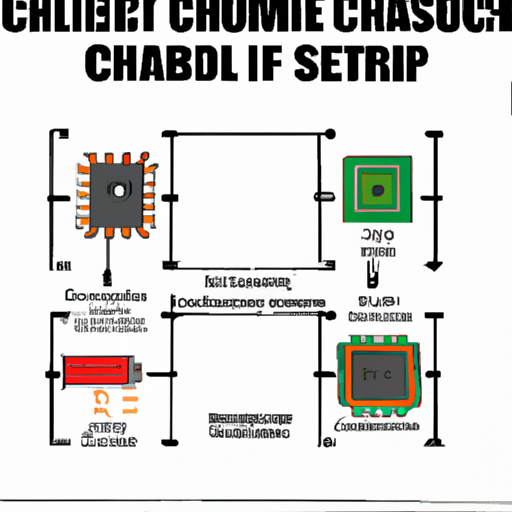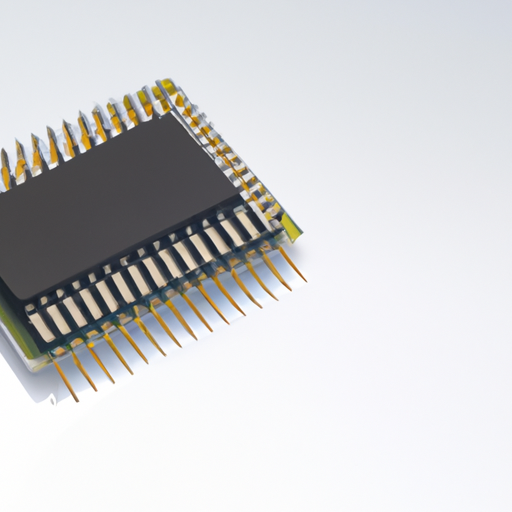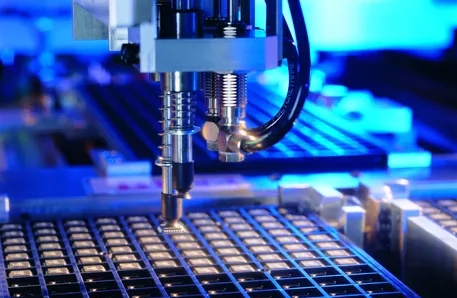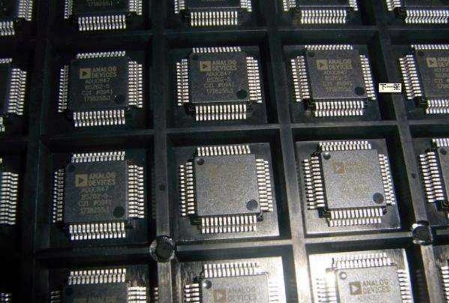What Industry Products Does Integrated Circuit Semiconductor Belong To?
I. Introduction
In the realm of modern technology, integrated circuit semiconductors (ICs) play a pivotal role. These tiny yet powerful components are the backbone of virtually every electronic device we use today. An integrated circuit is a set of electronic circuits on a small chip of semiconductor material, typically silicon, which can perform various functions depending on its design. The importance of integrated circuits cannot be overstated; they have revolutionized the way we interact with technology, enabling the development of compact, efficient, and powerful devices. This article will explore the various industries that utilize integrated circuit semiconductors, their historical context, emerging applications, challenges, and future trends.
II. The Role of Integrated Circuit Semiconductors
A. Explanation of Integrated Circuits (ICs)
Integrated circuits are essential components in modern electronics. They consist of multiple electronic components, such as transistors, resistors, and capacitors, integrated into a single chip. This integration allows for reduced size, lower power consumption, and increased reliability compared to discrete components. ICs can be classified into several types, including analog, digital, and mixed-signal ICs, each serving different functions in electronic systems.
B. Historical Context
The evolution of integrated circuits began in the late 1950s, with the invention of the first IC by Jack Kilby and Robert Noyce. This innovation marked a significant turning point in technology, leading to the miniaturization of electronic devices and the birth of the modern computing era. The impact of ICs on technology development has been profound, enabling advancements in various fields, from consumer electronics to aerospace.
III. Key Industries Utilizing Integrated Circuit Semiconductors
A. Consumer Electronics
The consumer electronics industry is perhaps the most visible sector utilizing integrated circuit semiconductors. From smartphones and tablets to laptops and desktops, ICs are integral to the functionality of these devices. They enable features such as high-speed processing, graphics rendering, and connectivity. Additionally, home appliances like smart refrigerators, washing machines, and thermostats rely on ICs to enhance user experience and energy efficiency.
B. Automotive Industry
The automotive industry has seen a significant transformation with the integration of advanced technologies powered by ICs. Modern vehicles are equipped with advanced driver-assistance systems (ADAS) that enhance safety and convenience. These systems rely on ICs for processing data from sensors and cameras. Furthermore, the rise of electric vehicles (EVs) has led to increased demand for ICs that manage battery systems, power distribution, and electric drivetrains. In-car entertainment systems also utilize ICs to provide seamless connectivity and multimedia experiences.
C. Telecommunications
Telecommunications is another critical industry that heavily relies on integrated circuit semiconductors. ICs are essential for network infrastructure, enabling the transmission of data over various mediums. The advent of 5G technology has further accelerated the demand for advanced ICs that can handle higher data rates and lower latency. Additionally, the proliferation of Internet of Things (IoT) devices, which connect and communicate over networks, has created a vast market for specialized ICs designed for low power consumption and efficient processing.
D. Industrial Automation
In the realm of industrial automation, integrated circuit semiconductors play a crucial role in enhancing productivity and efficiency. Robotics, control systems, and smart manufacturing processes all depend on ICs for precise control and data processing. These technologies enable manufacturers to optimize operations, reduce downtime, and improve product quality. As industries continue to embrace automation, the demand for advanced ICs will only grow.
E. Healthcare
The healthcare industry has also benefited significantly from integrated circuit semiconductors. Medical devices, such as imaging equipment, diagnostic tools, and wearable health monitors, rely on ICs for accurate data processing and real-time monitoring. Telemedicine solutions, which have gained prominence in recent years, also utilize ICs to facilitate remote consultations and patient monitoring. The integration of ICs in healthcare not only improves patient outcomes but also enhances the efficiency of healthcare delivery.
IV. Emerging Applications of Integrated Circuit Semiconductors
As technology continues to evolve, integrated circuit semiconductors are finding new applications in various fields.
A. Artificial Intelligence and Machine Learning
The rise of artificial intelligence (AI) and machine learning (ML) has created a demand for specialized ICs designed to handle complex computations and data processing. These chips, often referred to as AI accelerators, are optimized for tasks such as image recognition, natural language processing, and predictive analytics. As AI becomes increasingly integrated into everyday applications, the role of ICs in this domain will continue to expand.
B. Renewable Energy Technologies
The push for renewable energy sources has led to the development of advanced ICs that manage energy conversion and storage systems. Solar inverters, battery management systems, and smart grid technologies all rely on integrated circuits to optimize performance and efficiency. As the world transitions to cleaner energy solutions, the demand for ICs in this sector will grow.
C. Smart Cities and Infrastructure
The concept of smart cities, which leverages technology to improve urban living, relies heavily on integrated circuit semiconductors. ICs are used in various applications, including traffic management systems, environmental monitoring, and public safety solutions. By enabling real-time data collection and analysis, ICs contribute to the development of more efficient and sustainable urban environments.
D. Wearable Technology
Wearable technology, such as fitness trackers and smartwatches, has gained immense popularity in recent years. These devices rely on integrated circuit semiconductors to monitor health metrics, track activity, and provide connectivity. As consumer interest in health and wellness continues to rise, the market for wearable technology will expand, driving further innovation in IC design.
V. Challenges and Future Trends
A. Supply Chain Issues
Despite the growing demand for integrated circuit semiconductors, the industry faces significant challenges, particularly in supply chain management. The COVID-19 pandemic highlighted vulnerabilities in semiconductor supply chains, leading to shortages that affected various industries. Addressing these challenges will require collaboration among manufacturers, suppliers, and governments to ensure a stable supply of ICs.
B. Technological Advancements
The future of integrated circuit semiconductors is marked by rapid technological advancements. Miniaturization and performance improvements are driving the development of smaller, more powerful chips. New materials and manufacturing techniques, such as 3D stacking and advanced lithography, are enabling the creation of ICs with enhanced capabilities. As technology continues to evolve, ICs will play a crucial role in shaping the future of electronics.
C. Environmental Considerations
As the semiconductor industry grows, so do concerns about its environmental impact. Sustainability in semiconductor manufacturing is becoming increasingly important, with a focus on reducing energy consumption and waste. E-waste management is also a critical issue, as the rapid turnover of electronic devices leads to significant waste generation. The industry must prioritize sustainable practices to mitigate its environmental footprint.
VI. Conclusion
Integrated circuit semiconductors are integral to the functioning of modern technology, impacting various industries from consumer electronics to healthcare. Their evolution has transformed the way we interact with devices, enabling advancements that were once thought impossible. As we look to the future, the importance of ICs will only continue to grow, with emerging applications and technological advancements shaping the landscape of electronics. Addressing the challenges faced by the industry, such as supply chain issues and environmental considerations, will be crucial in ensuring the continued success and sustainability of integrated circuit semiconductors.
VII. References
For further exploration of integrated circuit semiconductors and their applications, consider the following resources:
- "The Semiconductor Industry: A Global Perspective" - Industry Report
- "Advancements in Integrated Circuit Technology" - Research Study
- "Sustainability in Semiconductor Manufacturing" - Environmental Report
These resources provide valuable insights into the current state and future trends of integrated circuit semiconductors, highlighting their significance across various sectors.

